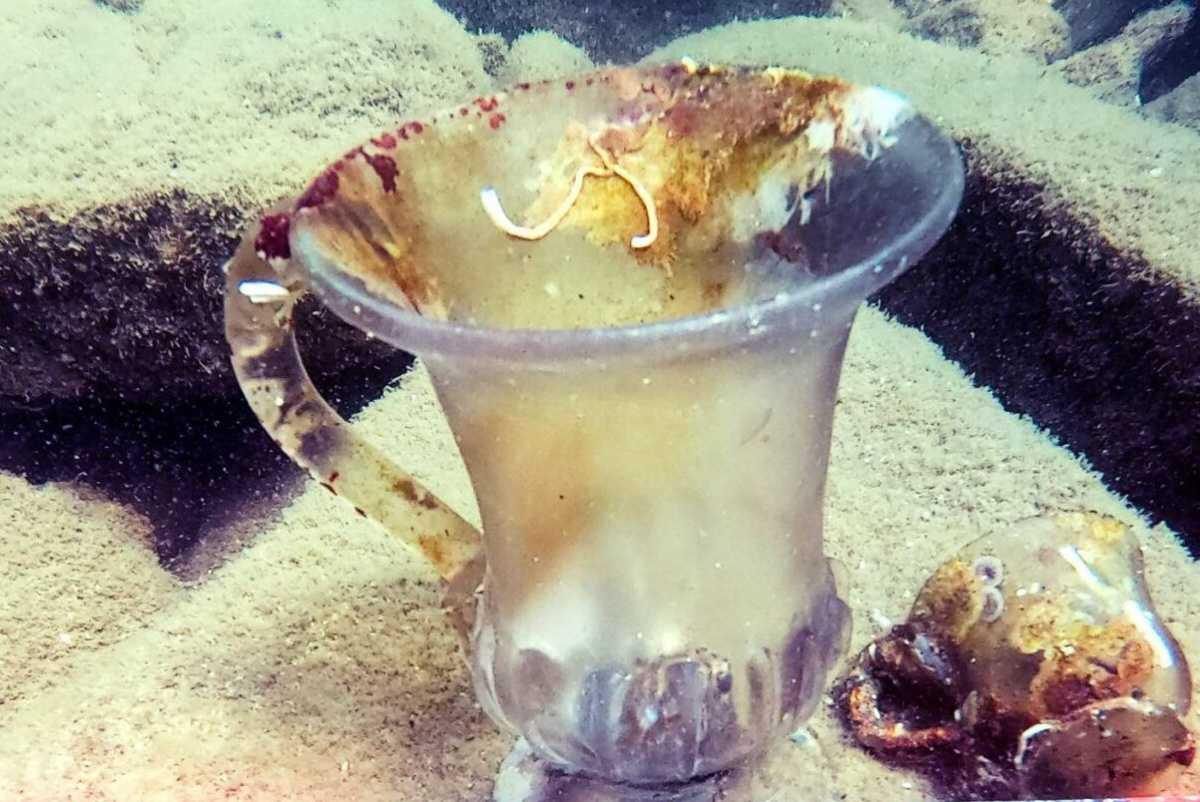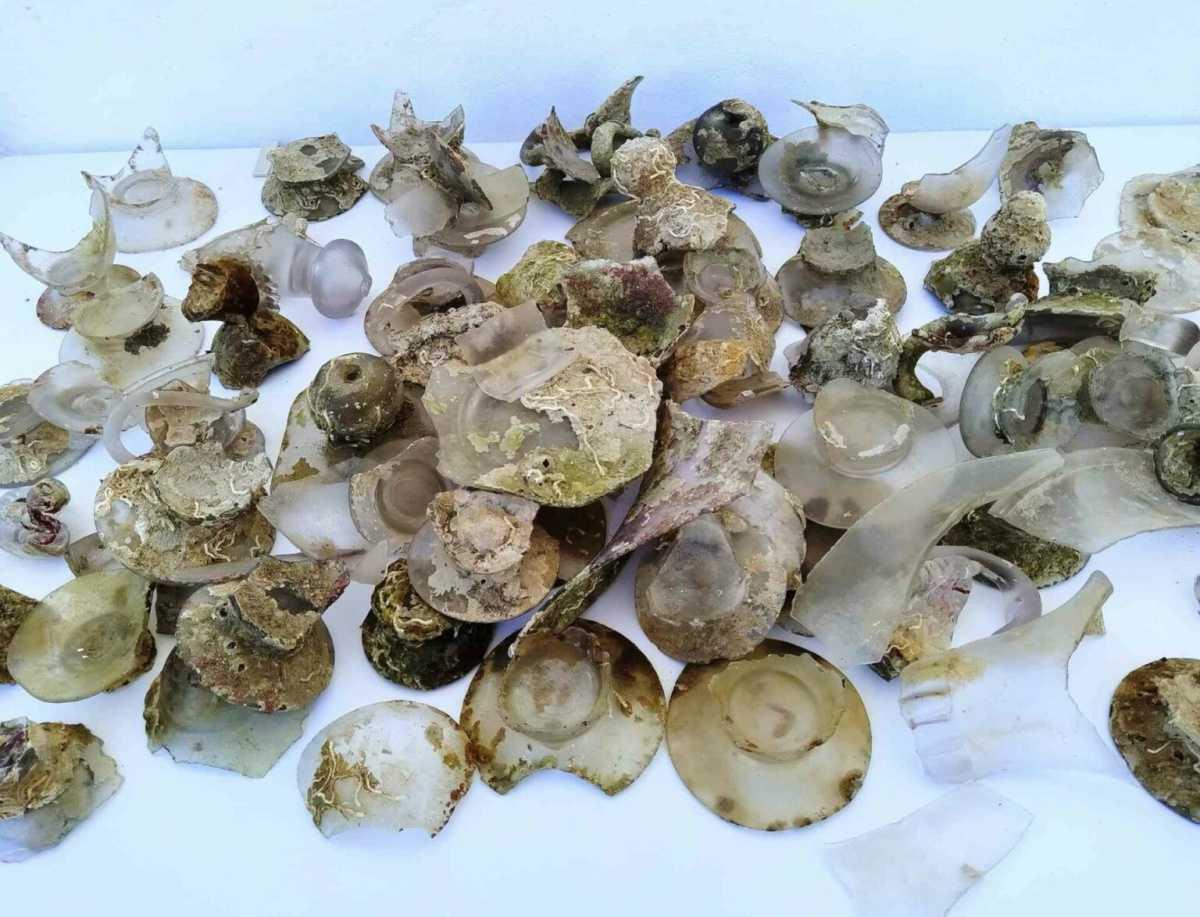A team of underwater archaeologists from the Regional Historical Museum Burgas have recovered 112 glass objects from Chengene Skele Bay, near Burgas, Bulgaria.
This discovery builds on previous finds from 2020 and 2021, which included 310 fragmented and whole glass vessels.
According to the researchers, the glass objects are likely part of a cargo spill from a ship that sunk during a storm or high swell.
This is further evidenced by the discovery of several iron anchor chains and highly fragmented ceramic vessels in the vicinity. However, the location of a wreck site has yet to be confirmed.
In the latest study, 112 whole and fragmented glass vessels were discovered, providing new insights into the trade and production in the Balkans during the Late Ottoman period.
“Until now, the hypothesis has been proposed that the vessels were most likely produced in a workshop on the island of Murano, Venice, in the second half of the 16th century or the beginning of the 17th century. Here the question of the exact dating of the glass objects and the possible shipwreck remains to be determined,” said RHM Burgas.
In the wider area, the study also discovered an assemblage of ancient Greek ceramics, a lead weight from the Roman period, amphorae from late antiquity, and Medieval ceramics consisting of type III Gunsenin amphorae from the 12th to 13th centuries.
The team also found a medieval wharf (pier) at the southeastern end of Chengene Skele Bay, which is documented in contemporary accounts by traders and visiting diplomats.
Header Image Credit : RHM Burgas
Sources : Regional Historical Museum Burgas



